On the job with County 911 boss, Wendy Lynch: 'When your best day is someone else's worst'
Plus: how the new 911 fee is levied
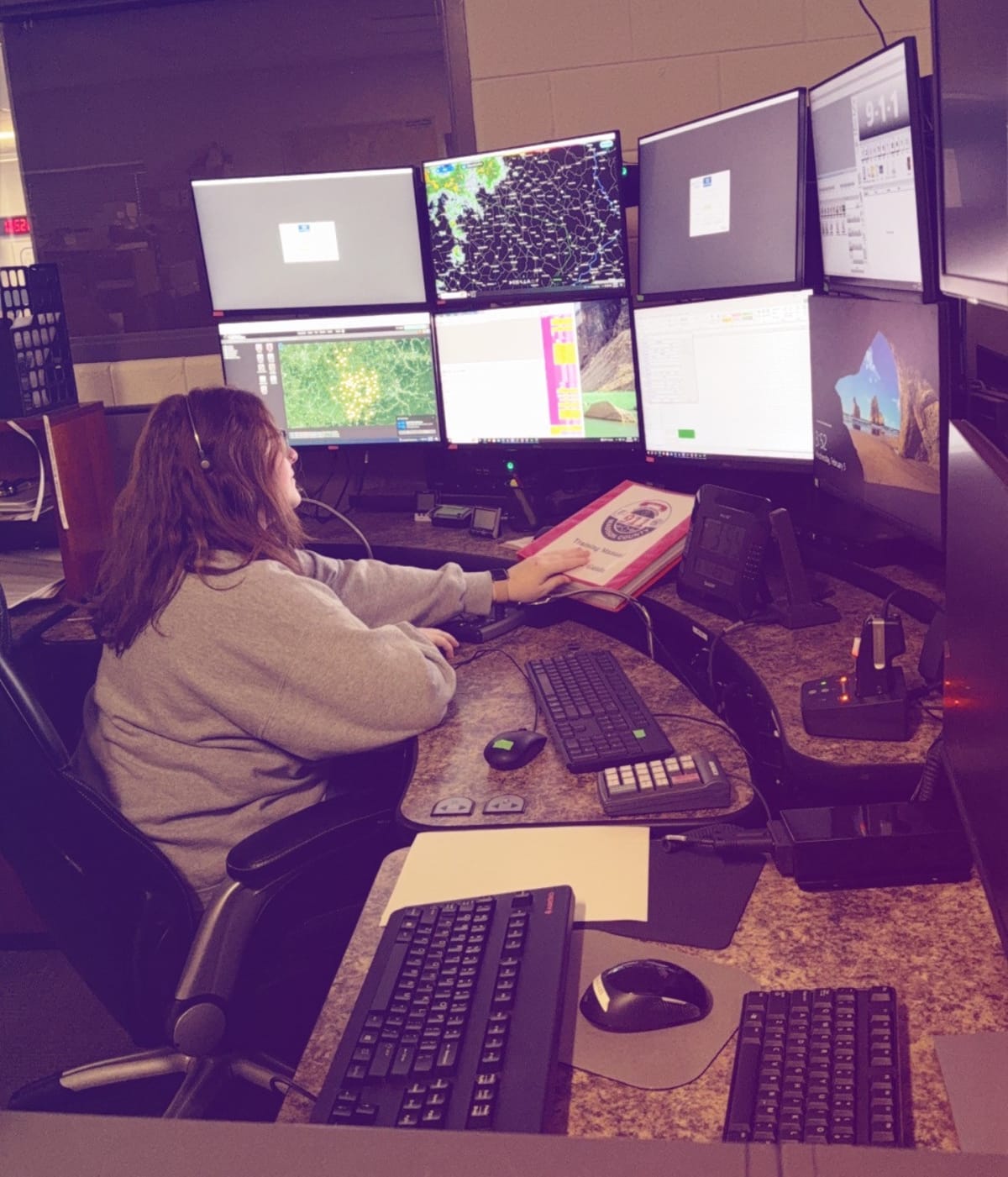
RICHMOND — Last month, Madison County’s Emergency Communications Center announced it had been certified as meeting the American National Standards for emergency response services by the Association of Public-Safety Communications Officials (APCO) International.
“A national certification of this magnitude demonstrates our center's commitment to our citizens, responders, and each other, as we navigate from one emergency call to another,” Wendy Lynch, public safety director for the center, said in a County media release.
The Edge took a tour of the Center and sat down with Lynch to learn more about how she and her team help provide emergency services to the County, what it takes to be a 911 operator, and how do we fund this stellar service – among the best and most cutting-edge in the state?
Profile
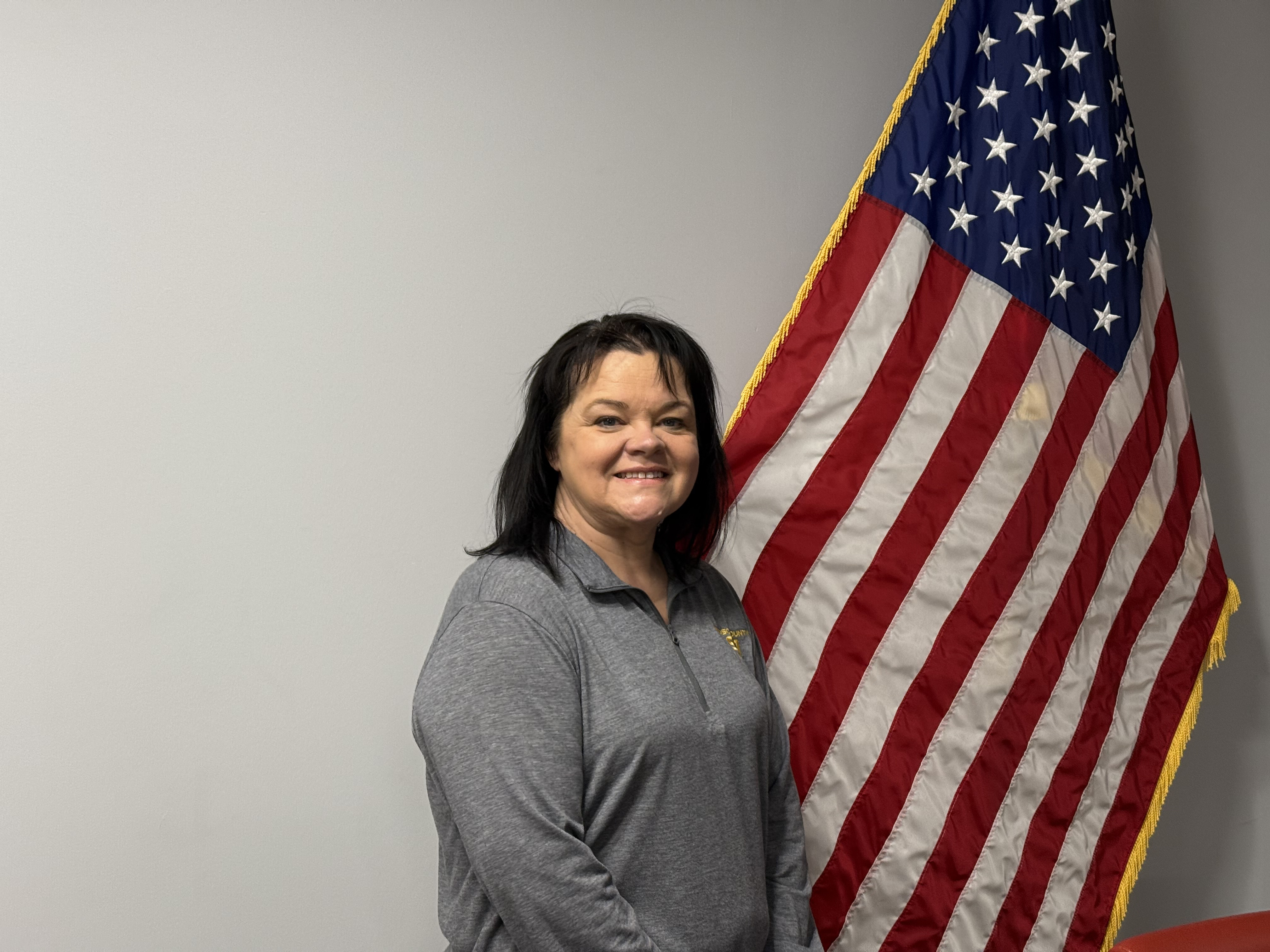
Just 10 seconds in Lynch’s presence, as she gestures to the consoles and multiple screens glittering with dots that indicate where distress calls are coming in from across the county, and it’s clear this woman loves her job.
“My husband says I will never retire,” she laughs. “I had plans on it, but with everything going on and the new fee being implemented – there's so many things that I still want to get done and for citizens,” Lynch said.
One of her pet projects is to implement a two-way texting program between 911 and citizens in distress. “We got a grant for it and I just notified carriers about it,” she said. “When it does go live, possibly in the next couple of months, in addition to the 911 dispatchers being able to text a caller back on their cell phone if it disconnects, we can text them back. So that's one of the things on my retirement bucket list.”
From hair salon to safety boss
Lynch said she found her way from styling hair to directing emergency services nearly 30 years ago when watching a reality show about first responders.
“It was the 90s and I was watching Rescue 911, and there was a small child who choked while he was eating and this dispatcher talked the mother through how to do the Heimlich. That dispatcher saved a life, and I thought, ‘Wow, that's what I want to do. I want to make a difference’,” Lynch told The Edge.
“I mean, I thought, ‘I'm making people smile. I'm doing hair, but wow, that's just amazing’, she said. “So then I saw that they had an opening at the Richmond Police Department and I was like, ‘I want to take those calls and I will learn how to help people’.”
Moves to top spot
Lynch applied for the job and has been in emergency management ever since, including a decade with the Richmond Police where she worked her way up from a dispatcher to becoming a TAC (terminal agency coordinator) officer, the person who coordinates all paperwork filed by beat officers and dispatchers, and ensures their reports are compliant state regulations.
“The director's position here came open in 2008. I'd had some leadership training. I'd been able to help supervise shifts at Richmond, even though I didn't have the official title,” Lynch said. “I felt it was just time I wanted to do more and make a difference. That's when I came here and I'm still here. You never know what’ll bring you your love and passion.”
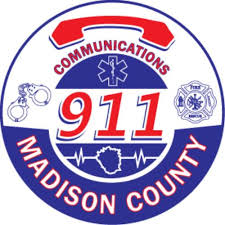
Protecting mental health
Lynch is concerned about the mental health of her team of dispatchers who must deal with the constant stress of emergency calls. She encourages them to walk around the room to clear their heads, or even to spend a few minutes in the bathroom which she has outfitted with soothing low-light.
“People can just go there to de-stress from a really hard call, like if you've given CPR instructions to someone for an infant, or you’ve done everything you could but the person didn't make it, or there was a fatality in a car wreck,” Lynch said.
While there isn’t a specific wellness room now, Lynch said she is working on creating a more robust mental health support system for her team, including creating a designated quiet place for them to collect themselves after a painful call.
Tragedy hits home
“This job has a high suicide rate, and a lot of dispatchers have PTSD. The average turn-over rate for this job nationally is about three years.” Lynch said, and recalled, tearfully, how after a colleague was murdered, the turn-over rate on her team spiked.
Indeed, federal data have shown that at least a quarter of all emergency call center workers are depressed, and have post-traumatic stress symptoms, but that suicides among this group are underreported. Suicide rates among first responders such as police and fire fighters trend higher than the general population.
“We had a dispatcher, Jackie Rose. She called 911. She didn't say her name. She just said, ‘I think my husband is gonna kill me’, and then the phone went silent. He shot and killed her and then he killed himself and their small child was in the house.”
After that, Lynch said her focus on mental health increased. There is a volunteer mental health committee that strategizes how to support one another.
High alert for harms in staff
“A lot of us have been here a while, but some of our newer dispatchers have a lot of really good ideas because they're seeing things from a different perspective because they grew up in a time where they've had more mental health supports at school and in society in general, and we didn't,” Lynch said.
Lynch said she is investigating peer support training and having a designated “stress navigator” software to track the toll of trauma on dispatchers and intervene before they experience mental and emotional harm.
“We had a dispatcher who dealt with three overdoses back-to-back, so they had given CPR instruction three times within one day, and that's not common. It had really taken a toll on them. But we were here when it happened, so we were able to pull them back. If we hadn't been here the dispatcher would have just went on home with all that weight on them,” Lynch said.
Training the family
As a kind of wrap-around mental health check, Lynch ensures new recruits are invited to bring their family into work so they can see firsthand how stressful the job is.
“I give them an overview of what a dispatcher does and some of the call types that we take and then I advise them what signs of stress to look for in their dispatcher loved one at home. Like, if they're withdrawn, if they're sleeping too much, if they have anger issues, if they're trying to cope with alcohol. Those are the kinds of things we would need to help the dispatcher with,” Lynch said.
First responders, ‘not secretaries’
Despite the heavy emotional burdens placed on 911 dispatchers, state and federal civil servant codes classify them as secretaries, and pays them accordingly. There is a bill now passing through Congress to reclassify them as first responders.
“We take the call first, so sometimes we hear the worst before even units respond,” Lynch said.
To have dispatchers’ status changed would make more mental health resources available to them, and raise their pay. Currently, dispatchers in the County start at $19.23, Lynch said.
Trained in safety
There is a month of required attendance at Kentucky’s department of criminal justice training, Lynch said her center requires an additional 16 weeks of internal training before a dispatcher is allowed to take calls, which is above industry standard.
“We meet and exceed the national standards with our training program because it's so in-depth and then we also do daily observation reports, we do check-ins, and we do testing. We have training Tuesdays and we communicate with all the agencies and departments to know what they need and what the standards for them are, and we insist that our people have 24 hours of training each year,” said Lynch.
Nelson County’s emergency communications center was the first in the state to earn the APCO designation, but Madison County wasn’t far behind, according to Lynch.
“They got it just a couple months ahead of us, but our training coordinator had left, so we just finished it up ourselves. We’re excited to have this national recognition,” she said.
Talking about her team, Lynch is fired up. “I learn from them,” she said. “We’re not perfect, but we do our best. I’d put my center up against anybody else's center any day of the week.”
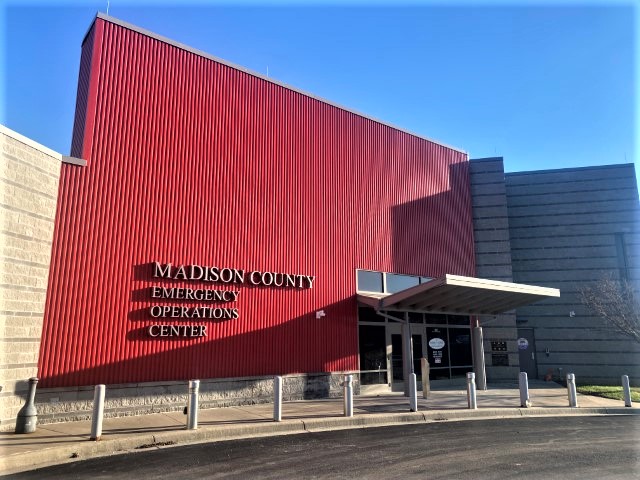
Emergency Communications Center
Wendy Lynch describes how 911 call demands are met
Wendy Lynch: In the past, we were just Madison County 911, which was a consolidated center that was run by the Safety Advisory Board made up from all three governments – Berea, Richmond, and Madison County Fiscal Court, but now we are actually a county department. Now, we've transitioned to an emergency communication center because we do a lot more than just 911 here.
The Edge: What prompted the change?
WL: A lot of what motivated the change is the fact that 911 fees are dwindling because when I became director here in 2008, most of the fees collected to pay for the 911 center were from landline fees because everyone had a landline phone back then. That was when you would call into 911, and then it would give your home address, your name and your phone number. There was a monthly fee on everybody with a landline.
But now the average 85 to 90 percent of the calls that come in are from cell phones. So no one's paying those landline fees anymore, and the cell phone fees are submitted to the state. Then the state takes that money – it’s a portion of your cell phone bill, but the state keeps part of that and then we get it a portion pro-rated out by the amount of subscribers in our area based on the area code.
TE: But what about people who live here but who have cell phones from different area codes?
WL: Right, like students at EKU. We're not collecting their fees. Those fees are going on their cell phone bills back to their hometown. So the landline fees have really dwindled down and cell phone fees don’t make it up.
So the three governments were having to pay for 911 out of a general fund, but the easiest way for all three to support the 911 program sufficiently was to think of a way to properly fee everyone, because what we're finding now is that it’s a lot of the rural areas and a lot of the elderlies that still have the home phones, and are the only ones paying the landline fee.
So they were looking for a way that was fair, and that’s why they came with the property-based fee. I can't speak for all of it because there is a formula for it. But on average, it's still cheaper than what we were paying in 2008 for the landline fee of $3.50 per month. (ed. Note: the 2025 911 fee formulas for all property classifications can be found here.)
TE: Is this unusual?
WL: No. Most centers are trying to think of something new to pay for their services, and a lot of them have gone to this kind of property fee. Some of them just do a straight fee on the property, not by square footage, but our county felt like the fee per square footage was a really good way to assess. It’s more fair. ]
You know, if you live in a smaller area or a smaller home, you know, then your income may be a little different. So they just tried to be as fair as they could about it, they didn't hit anybody hard.
A lot of counties like Kenton County and Campbell County, they went to putting it on water fees and we looked at that, but that entailed a lot of different people trying to collect those fees for you because we have so many municipalities around here, so many different districts.
Other counties have done electric fees, but the ones that have done the fees through properties have been very successful. And, we can leverage the fee based on whether call volumes go up or down.
TE: You’re also about to lose CSEPP money, too, right? (ed. note: CSEPP refers to the Chemical Stockpile Emergency Preparedness Program, co-administered by the Department of Defense for the chemical weapons formerly stored at the Blue Grass Army Depot. Now that the stockpile has been decommissioned, there is no need for an emergency response to a chemical leak. CSEPP funds are set to cease by 2026.)
WL: Not only have we lost the landline fees, but because we are the 24/7 backup for the CSEPP, some of that funding is going away too. CSEPP money paid for this building that we're in. Our equipment that we use, we’re able to have because we share a lot of it with CSEPP.
TE: That sounds like a lot of money.
WL: When CSEPP’s gone, those are more things that the three governments will have to take on. Things like the radio system that all of our first responders use now – their portables, mobiles, our desk consoles, the way we communicate all over the county and how we're all able to share talk groups when we have big events where we have channels with a unified command and all those kinds of things – all of that was bought and paid for, along with the maintenance, was through CSEPP.
When it's gone, that's a multimillion dollar project that now the cities and the county will have to take over. This property fee also helps with that.
It's not just a fee for us to just be sitting here answering a phone. It's for so much more than that. It's to talk to the responders, to get them to the calls and to make sure they're safe when they're responding and that we're getting the closest unit there and those kinds of things.

So it's all for that infrastructure as well as alert notification systems, because even after CSEPP, we're still gonna have tornadoes, we're gonna have weather events. We could have active shooter events, and we just want to have ways to notify the public.
TE: In the meantime, as a result of the partnership with the DoD, this is a really spectacular facility. It’s clean and cutting edge. And it’s large and well-constructed with disasters in mind so you are as safe as possible while commanding the emergency response. Is it unusual for a municipality or county such as ours to have this kind of top-notch facility?
WL: It is unusual, yes, for our building to be structured as it is for a chemical event, with the ventilation and other things we have to do if that happens. Then we have the raised flooring that allows us not to have all the wires and things all across the floor in our center. That helps prevent hazards and it just makes it easier for our equipment to be worked on.
TE: Let's talk about the differences between all the emergency services. Which services are on this campus?
WL: In this building we have 911, and we dispatch for all of the Berea, Richmond and Madison County emergency responders. We have the EMA – emergency management agency – they help us prepare for disasters and then they are the ones to respond when disasters occur – so tornadoes, floods, shootings. They get involved in anything that we would need resources from the state. So if we had a shooting, or a flood, those kind of things.
They also work with the local emergency planning commission. We have meetings with them, and that's where we meet with factories because a lot of the factories have hazards that you might not think about if there were to be a big incident. They help us know more about how to best respond – what are our protocols? What are the floor plans? What will we do? What are evacuation areas?
They also do the day-to-day like snow events. If there's an emergency declaration to be made, then EMA does that. They also help get reimbursements from FEMA for people when there's a natural disaster.
Then we have the Madison County EMS (emergency medical service). They are their own taxing district for the ambulance and emergency medical services.
TE: So in addition to the text-911 program, are there other programs and improvements you are working on?
WL: We've had a huge GIS – geographic information system – project we’ve been working on ever since I've been here. We’re just trying to get everything in one database.
We're very excited about meeting these next generation 911 standards. A lot of people think that's just being able to text to 911, but it's so much more than that. But as we keep on inputting the data, we'll be able to tell what floor you're on in a building, not just the building you're in.
It's very exciting. We're not all the way there yet, but we’re getting all the buildings and everything documented within the county.
So if you call from a farm and you're at a barn, that barn would have a geographic dot on it. So it really narrows it down.
This project will make sure there aren’t different entries from all the different agencies for the same location. Like, some agencies would put in “Street” while others would put “St.”. This next gen 911 only lets us put it in one way. Then our goal is to work on some of the streets with the same names but different endings like Peach Tree Street instead of Peach Tree Court.
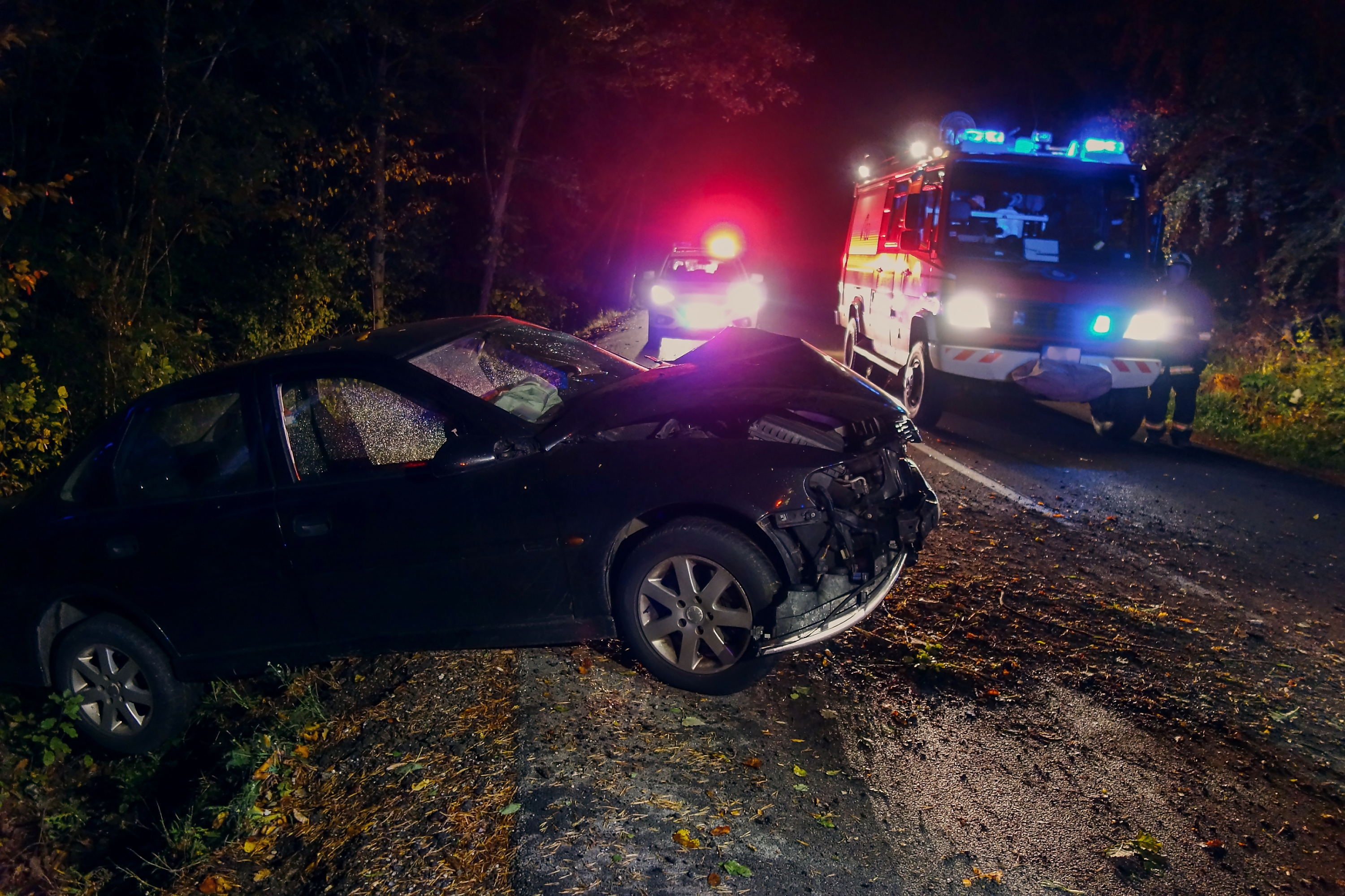
In an emergency when someone's screaming, and it’s hard to understand them, people don't think when you're naming a subdivision that two or three streets in there could have very similar names and people don’t always remember to say the full name of the street. They just know their Peach Tree.
I get nerded out about it, but it's very exciting because you know the difference in minutes can save lives. You don’t want to lose minutes on a back street because you went exactly where the caller told you to go, but it still wasn’t the right street. We're very fortunate that we have a GIS department. A lot of centers do not.
TE: Do you keep data on lives saved so you will know how much this GIS system will improve your ability to respond?
WL: I think the actual individual agencies keep more of that data. I think that's one of the hardest parts of our jobs at a 911 center is you don't always get the gratification of knowing what happened to the caller. ‘Did they make it, did they not make it?’ We don't always get the follow-up because we're on to the next call, so unless we specifically ask we don't know.
TE: What is it like to be on the other end of somebody's distress? Do you train people to handle it?
WL: We do. We do about 16 weeks in-house training and then our dispatchers go to the Department of Criminal Justice training for four and a half weeks at EKU.
When I started dispatching, once you got trained, you went on to a shift, but you were by yourself, so you answered the phone, you dispatched the call, and it was down to you.
You didn't have anybody to ask a question if something happened, you were just rocking and rolling and. Now, you have other people in the room that you can lean on and get that support, which is good because it's very stressful. It's very hard.
You're trained to do your best when someone else is at their worst. Sometimes your best day has been somebody else's worst worst day. You're trusted with so much the public doesn't even realize is on you.
But, when people call in, they have to feel comfortable and they're trusting you with their worst day, with information they don't want made public, you know – like if they came home to find their child has overdosed with a needle in their arm. And, you know, we can’t be judging them, we’re here to help. We just want to get you the help you need.
Sometimes we even help delivery drivers get to the right address. That can be a big deal so he doesn’t clear out a bunch of mailboxes and get stuck on an old road. Sometimes they get off the interstate, and take a wrong turn. So, we'll send a deputy out to get them turned around. As a dispatcher, you just don't know what you're gonna get.
The Edge is Berea’s source for news and information that empowers citizens. Become a paid subscriber now.



